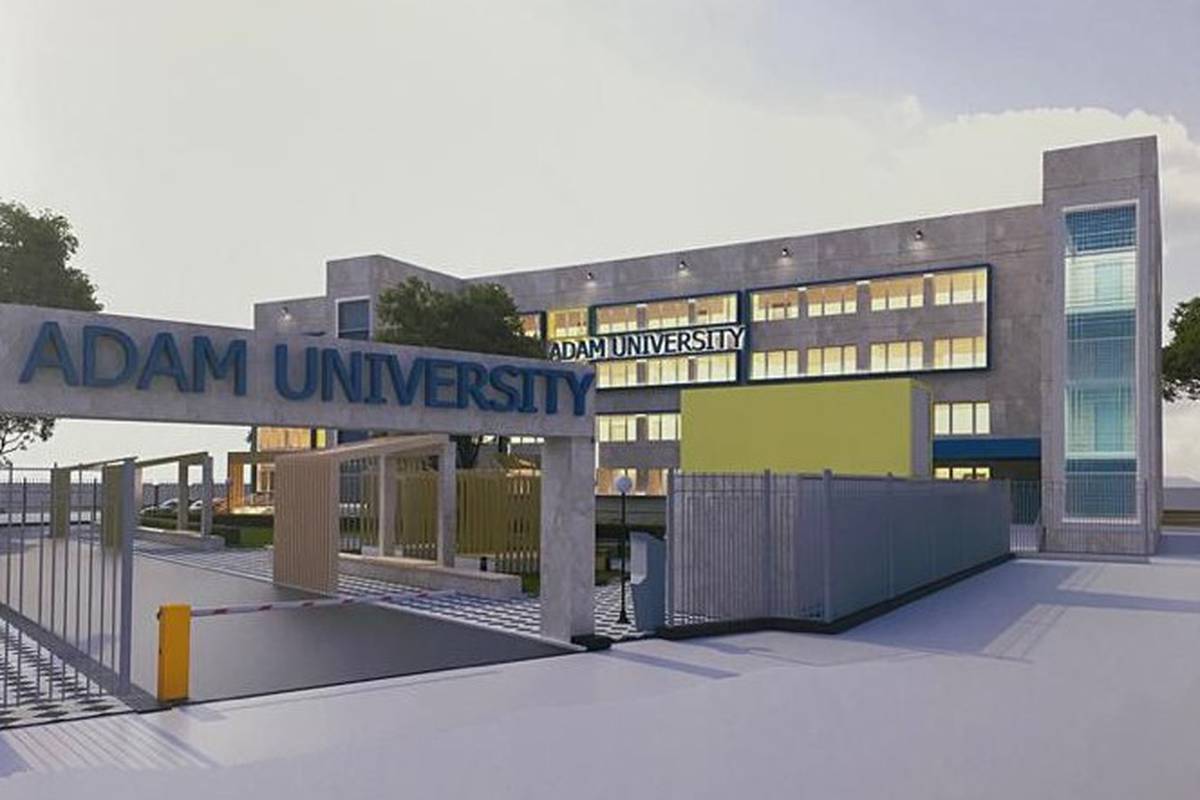
☝️ At a glance
- Physiotherapy offers a fulfilling career with high demand in healthcare, addressing needs like sports injuries, chronic diseases, and rehabilitation.
- Aspiring physiotherapists must complete courses such as Bachelor of Physiotherapy (BPT), Master of Physiotherapy (MPT), or Doctor of Physiotherapy (DPT) programs, with clinical practice and hands-on experience.
- Career growth is enhanced through specialized fields like sports physiotherapy, neurological physiotherapy, and cardiopulmonary physiotherapy.
- Candidates need to complete 10+2 with Physics, Chemistry, and Biology for BPT eligibility, with course fees ranging from ₹50,000 to ₹2,50,000 annually.
- Entry-level salaries range from ₹3,00,000 to ₹5,00,000, with senior roles in specialized areas offering higher earnings (₹9,00,000 to ₹15,00,000).
Physiotherapy is a dynamic and rewarding field in the healthcare industry, dedicated to improving physical well-being, restoring movement, and helping patients manage pain effectively. As the demand for physical therapists continues to grow, more aspiring physiotherapists are choosing this fulfilling career path. Whether treating sports injuries, assisting patients with multiple sclerosis, or addressing conditions like chronic obstructive pulmonary disease, physiotherapists play a critical role in enhancing quality of life.
To become a physiotherapist, candidates must complete specialized physiotherapy courses that combine physical therapy education, clinical practice, and hands-on clinical experience. These programs, ranging from undergraduate degrees like BPT courses to advanced master's degrees and DPT programs, focus on essential subjects such as human anatomy, therapeutic interventions, and treatment plans. Students also gain experience through clinical internships in rehabilitation centers, health centres, and private hospitals, ensuring they develop the practical skills needed to practice legally and treat patients successfully.
This comprehensive guide explains how to become a physiotherapy doctor, covering key areas like physiotherapy course eligibility, entrance exams, and admission processes. It also highlights career paths, costs, scholarships, and salary prospects. Specializations, including sports physiotherapy and cardiopulmonary physiotherapy, offer further opportunities to excel. Whether pursuing a bachelor’s degree, graduate degree, or planning to practice independently, this article outlines every step for building a successful career in physical therapy and achieving professional excellence in this vital medical profession.

Become a global doctor with MBBS abroad!
Studying abroad can be affordable and stress-free with futureMBBS:
- World-recognized universities with English-taught programs
- On-site support in partner university cities
- Guaranteed placements & internships for hands-on experience
From selecting universities and supporting you with the application process to orientation and finding accommodation – we are at your side.
Why choose physiotherapy as a career?
Physiotherapy is one of the most dynamic and rewarding fields in the healthcare industry, offering a fulfilling career focused on improving physical well-being, restoring physical function, and helping patients manage pain. The growing prevalence of lifestyle diseases, sports injuries, and conditions such as chronic obstructive pulmonary disease and multiple sclerosis has significantly increased the demand for skilled physical therapists. As a result, the field of physical therapy has emerged as a crucial part of modern health sciences.
Growing demand in the healthcare industry
Physiotherapy addresses the needs of patients recovering from sports injuries, surgeries, and neurological disorders. It also provides solutions for chronic illnesses such as multiple sclerosis and cardiopulmonary conditions. The increasing awareness of physical health and the importance of rehabilitation centers, health centres, and sports facilities has fueled the demand for physiotherapy programs.
With advancements in physical therapy education, candidates can pursue physiotherapy courses that focus on practical skills, human anatomy, and therapeutic interventions. Graduates of bachelor’s degree and master’s degreeprograms gain the expertise to treat patients, design treatment plans, and assist in rehabilitation. These programs emphasize clinical internships in private hospitals and leading hospitals, ensuring hands-on exposure to real-world clinical settings.
Benefits of a career in physiotherapy
High demand for physiotherapists
The rise in sports injuries, post-operative recovery cases, and age-related conditions ensures a steady demand for physical therapists. Patients recovering from strokes, fractures, and disabilities rely heavily on physiotherapy for rehabilitation, creating career stability in this field.
Diverse career opportunities
Physiotherapists can work in private hospitals, rehabilitation centers, sports facilities, and health centres. Those looking to practice independently can establish private practices or offer services in specialized areas like sports physiotherapy or cardiopulmonary physiotherapy.
Flexible work options
One of the unique advantages of becoming a physiotherapy doctor is the flexibility to practice legally in both clinical settings and private setups. This allows aspiring physiotherapists to balance professional and personal commitments effectively.
Specializations for career growth
Students can pursue physiotherapy courses in specialized fields, including sports medicine, neurological physiotherapy, cardiopulmonary physiotherapy, and orthopedic physiotherapy. These areas address specific patient needs, enhancing clinical practice and improving career prospects.
Affordable education and high ROI
Compared to other professions in the medical profession, physiotherapy offers affordable physiotherapyprograms with reasonable tuition fees. After successful completion of a bachelor’s degree or graduate degree, physiotherapists can earn competitive salaries, ensuring a high return on investment.
Fulfilling career and patient impact
Physiotherapists play a direct role in helping patients alleviate pain, recover from injuries, and regain mobility. Their ability to treat patients effectively improves lives, making it a fulfilling career. From working with athletes to assisting elderly patients in regaining independence, physical therapists contribute meaningfully to society.
Global recognition and mobility
A physiotherapy degree from a recognized institution allows graduates to work internationally after clearing relevant exams like the National Physical Therapy Examination (NPTE). This provides global career mobility and access to continuing education for further skill enhancement.
Practical and hands-On learning
Most physiotherapy courses emphasize hands-on clinical experience through clinical internships and lab-based training. This ensures that aspiring physiotherapists gain real-world knowledge in treatment plans, therapeutic interventions, and patient management.

Study medicine abroad with 100% support!
futureMBBS offers full support to make your dream of studying medicine abroad a reality.
- Hassle-free admission guidance
- Fast-tracked visa processing
- Post-arrival support, including accommodation assistance
Future scope in physiotherapy
With increasing investments in sports facilities, rehabilitation programs, and health sciences, the need for physiotherapy programs is set to rise. Graduates can also explore teaching roles, educating students about physical therapy education and mentoring new therapists.
Eligibility criteria for physiotherapy courses
To become a physiotherapist, candidates must fulfill certain eligibility criteria, which vary across institutions. These requirements generally ensure that candidates are well-prepared for the rigorous academic and practical training involved in the physiotherapy profession. Below are the key criteria for admission to physiotherapy courses, including the Bachelor of Physiotherapy (BPT) and Master of Physiotherapy (MPT) programs.
Basic requirements
Education: Candidates must have completed 10+2 with Physics, Chemistry, and Biology (PCB) as the core subjects. This ensures that the candidate has a foundational understanding of human anatomy and basic health sciences, which are essential for a career in physical therapy.
Minimum percentage: Typically, candidates need at least 50% aggregate marks in their Class 12 exams to be eligible for admission to a physiotherapy course. However, this percentage requirement may vary slightly across institutions.
Age limit: The minimum age for admission is generally 17 years at the time of admission. Some universities may set specific upper age limits, so it is important to check with the respective institution for detailed age requirements.
Additional requirements
Entrance exams: While NEET (National Eligibility cum Entrance Test) is not mandatory for physiotherapy programs, some universities may require candidates to appear for their own entrance tests. Institutions like AIIMS or certain state-level CETs (Common Entrance Tests) may also consider these scores. Additionally, universities like CUET (Common University Entrance Test) have started being accepted for physiotherapy admissions in central institutions. Mostly admission is done on the basis of class 12th percentage.
Documents required: Candidates must submit essential documents, including:
Class 12 marksheet or equivalent certificate.
Identity proof (Aadhar card, passport, etc.).
Fitness certificate and medical records to ensure they are physically capable of handling the demands of clinical practice.
Specific prerequisite courses
Some institutions may also require candidates to complete specific courses or subjects related to health sciences, human body, and sports physiotherapy as part of the eligibility criteria. Aspiring physiotherapists must meet these requirements to ensure they have the foundational knowledge to pursue a physiotherapy degree successfully.
Types of physiotherapy courses

Physiotherapy offers various pathways for aspiring physiotherapists, with undergraduate, postgraduate, and doctoral programs catering to different levels of expertise. These programs focus on human anatomy, therapeutic interventions, and practical skills development in clinical practice. Below are the main types of physiotherapy courses:
Undergraduate degree – Bachelor of Physiotherapy (BPT)
The Bachelor of Physiotherapy (BPT) program is the foundational degree for those looking to become a physiotherapist. It typically spans 4 years, followed by a 6-month clinical internship where students gain hands-on experience. The course emphasizes human anatomy, therapeutic interventions, and preparing students for real-world clinical practice.
Eligibility: Candidates must have completed 10+2 with Physics, Chemistry, and Biology (PCB) as core subjects. Entrance exams like NEET-UG or state-level exams may be required for admission.
Postgraduate degree – Master of Physiotherapy (MPT)
After completing a BPT degree, students can opt for a Master of Physiotherapy (MPT) program to specialize in specific fields of physiotherapy. The program lasts for 2 years and offers in-depth training in specializations like cardiopulmonary physiotherapy, sports physiotherapy, and neurological physiotherapy. MPT students focus on developing advanced practical skills and gain greater exposure to clinical practice.
Eligibility: Completion of a BPT degree is required to pursue an MPT program.
Doctor of Physiotherapy (DPT Program)
The Doctor of Physiotherapy (DPT) program is an advanced-level course designed for those seeking to expand their knowledge in physiotherapy research and clinical applications. The program can take 3 to 5 years to complete and emphasizes advanced clinical exposure, research, and intensive clinical internship to prepare graduates for high-level clinical practice and private practice.
Eligibility: Completion of a BPT or MPT degree is generally required for admission.
Program | Duration | Key Focus Areas |
|---|---|---|
BPT | 4.5 years (with internship) | Basic physical therapy education, Human Anatomy, Therapeutic Interventions |
MPT | 2 years | Advanced practical skills, Sports Physiotherapy, Neurological Physiotherapy |
DPT | 3–5 years | Research, Advanced Clinical Exposure, Clinical Internship |
These programs provide comprehensive knowledge and clinical practice to equip aspiring physiotherapists with the necessary practical skills to manage pain, treat patients, and practice in various healthcare settings. Whether through a BPT, MPT, or DPT, each program builds upon the last, offering increased specialization and depth.
Best universities for physiotherapy in India
University name | Location | Entrance exam |
|---|---|---|
Christian Medical College (CMC) | Vellore | NEET-UG/CET |
Manipal Academy of Higher Education | Manipal | Institution-specific entrance test |
Sri Ramachandra Institute of Higher Education | Chennai | Marks in 10+2 |
Jamia Hamdard University | Delhi | Marks in 10+2 |
Banaras Hindu University (BHU) | Varanasi | NEET-UG/CUET/BHU Exam |
Please note that while NEET-UG is a common entrance exam for many institutions, some universities may have their own entrance tests or accept other examinations. It's advisable to check the specific admission requirements of each university for the most accurate and up-to-date information.
Cost of studying physiotherapy in India
Course fees
Course Type | Average annual fee (INR) |
|---|---|
Bachelor of Physiotherapy (BPT) | ₹50,000 – ₹2,00,000 |
Master of Physiotherapy (MPT) | ₹70,000 – ₹2,50,000 |
Diploma Courses | ₹30,000 – ₹80,000 |
Living expenses
Expense | Monthly cost (INR) |
|---|---|
Accommodation | ₹6,000 – ₹12,000 |
Food and Groceries | ₹3,000 – ₹5,000 |
Transport | ₹1,000 – ₹2,000 |
Miscellaneous | ₹2,000 – ₹4,000 |
Specializations in physiotherapy
Specializations in physiotherapy allow practitioners to focus on specific areas of patient care and treatment, offering exciting career opportunities.
Sports Physiotherapy: This specialization focuses on treating sports injuries and optimizing athletic performance. Sports physiotherapists work with athletes to prevent, treat, and rehabilitate injuries, ensuring athletes recover effectively and perform at their best.
Neurological Physiotherapy: Neurological physiotherapy is dedicated to treating patients with neurological disorders like multiple sclerosis, Parkinson's disease, and stroke. These physiotherapists use specialized techniques to help patients regain motor function and manage symptoms.
Cardiopulmonary Physiotherapy: Specializing in managing conditions such as chronic obstructive pulmonary disease (COPD) and other cardiac issues, this area helps patients improve their breathing and heart function through therapeutic interventions and exercises.
Orthopedic Physiotherapy: Focused on treating musculoskeletal injuries such as fractures, joint problems, and arthritis, orthopedic physiotherapists use hands-on clinical experience to alleviate pain and restore physical function.
Each of these physiotherapy specializations requires targeted physiotherapy courses, practical skills, and often an advanced master’s degree. Pursuing these areas of practice can significantly contribute to improving patients’ quality of life.
Jobs and salary in physiotherapy
Salary trends
Experience Level | Job Title | Annual Salary (INR) |
|---|---|---|
Entry-Level (0–2 years) | Physiotherapist, Clinical Physiotherapist | ₹3,00,000 – ₹5,00,000 |
Mid-Level (3–8 years) | Senior Physiotherapist, Sports Physiotherapist, Rehabilitation Specialist | ₹6,00,000 – ₹8,00,000 |
Senior Level (10+ years) | Lead Physiotherapist, Physiotherapy Director, Clinical Specialist | ₹9,00,000 – ₹15,00,000 |
This salary range reflects the experience and expertise level within the physiotherapy profession. Entry-level positions often start in general physiotherapy roles, while mid and senior-level professionals can specialize in fields such as sports physiotherapy, cardiopulmonary physiotherapy, or take on leadership roles in health centers, hospitals, and private practices.
How to Apply for Physiotherapy Courses?
Research universities – Shortlist institutions offering recognized programs.
Entrance exam preparation – Take exams like NEET-UG or state CETs.
Application submission – Complete forms and submit documents.
Counseling process – Attend counseling for seat allocation.
Enrollment – Confirm admission and start the program.
Documents required for admission
10+2 Mark Sheets
Entrance Exam Scorecard
Transfer Certificate
Identity Proof
Passport-sized Photos
Medical Fitness Certificate
Conclusion
A career in physiotherapy offers stability, growth, and immense satisfaction within the medical profession. With the right educational qualifications, clinical internships, and practical skills, aspiring students can thrive in this rapidly expanding field. Whether pursuing a Bachelor of Physiotherapy (BPT), a Master of Physiotherapy (MPT), or even a Doctor of Physiotherapy (DPT) program, there are numerous pathways to specialize and succeed in various areas of physiotherapy. As the demand for physical therapy professionals continues to rise, opportunities in private practices, hospitals, rehabilitation centers, and sports facilities are abundant.
For students aspiring to become physiotherapists, NEETsheet by futureMBBS provides comprehensive resources and guidance to help navigate the NEET-UG and other entrance exams, ensuring they are well-prepared to meet the eligibility requirements of top physiotherapy programs. Whether aiming for sports physiotherapy, neurological physiotherapy, or cardiopulmonary physiotherapy, NEETsheet ensures students have the tools they need to excel in their educational and professional journey.
Your medical career abroad starts here!
Thinking of pursuing MBBS abroad? Don’t just dream it, do it!
Start your MBBS journey!
FREQUENTLY ASKED QUESTIONS
FAQs about "how to become a physiotherapist"
Is NEET required for physiotherapy?
NEET is not mandatory for physiotherapy courses. While some institutions may accept NEET scores, many universities admit students based on their Class 12 marks or through their own entrance exams.
What is the duration of BPT courses?
The Bachelor of Physiotherapy (BPT) course typically lasts 4 years, followed by a 6-month clinical internship to provide hands-on experience.
Can physiotherapists practice independently?
Yes, after completing their physiotherapy degree and obtaining the necessary license, physiotherapists can establish their own private practice or work independently in various clinical settings.
What is the starting salary for physiotherapists?
Entry-level physiotherapists can expect an annual salary ranging from ₹3,00,000 to ₹5,00,000. Salaries increase with experience and specialization.
What are the best specializations in physiotherapy?
Highly sought-after specializations include sports physiotherapy, which focuses on athletic injuries, and cardiopulmonary physiotherapy, which deals with chronic diseases like chronic obstructive pulmonary disease (COPD) and heart conditions. Other notable fields include neurological physiotherapy and orthopedic physiotherapy.




